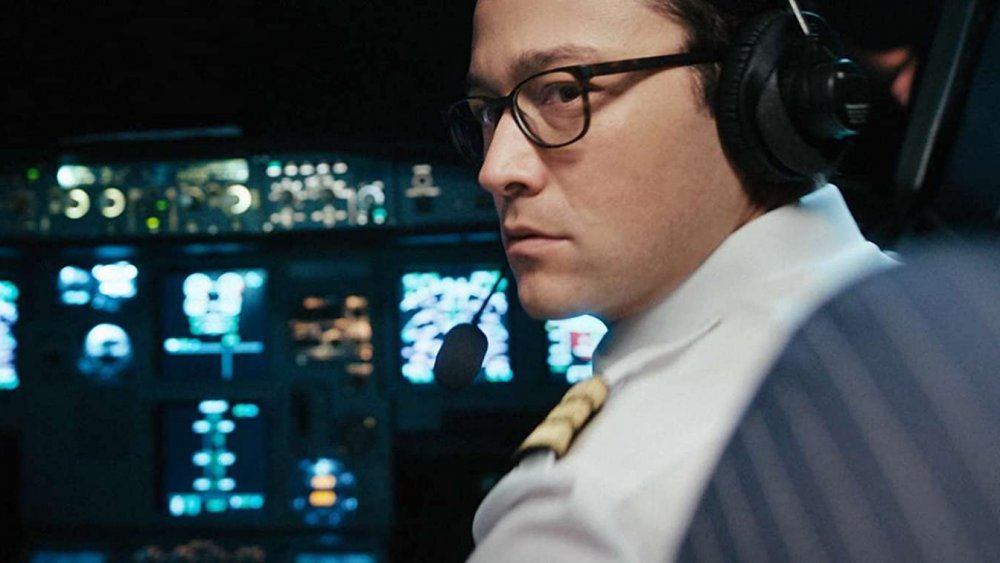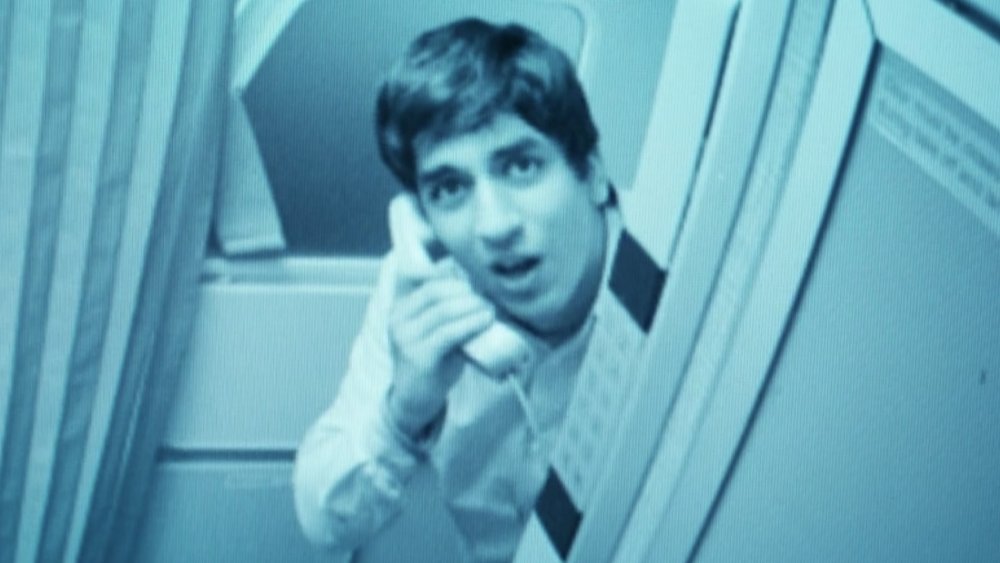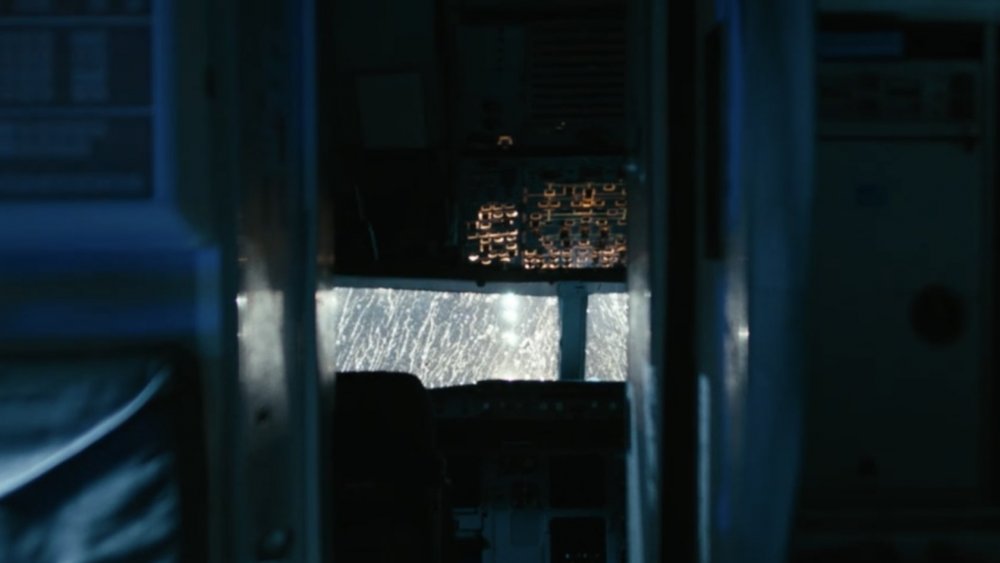The Ending Of 7500 Explained
7500 is the story of a skyjacking told from the perspective of the airplane's cockpit.
Cast in the high-altitude drama back in 2017, Joseph Gordon-Levitt stars as Tobias Ellis, an American co-pilot on a flight heading from Berlin to Paris. Alongside Captain Michael Lutzmann (Carlo Kitzlinger) and his pregnant flight attendant girlfriend Nathalie (Aurélie Thépaut), Tobias successfully embarks on the short two-hour journey before the flight takes a terrible turn. A group of hijackers has made their way onto the plane, with a desire to crash the plane and kill everyone onboard. In little to no time, they successfully take control of the cabin and set their sites on the plane's cockpit.
With Tobias in control of the plane and unable to open the door, he must balance his duty to negotiate a safe landing with a desire to protect the individual lives of the passengers. As he works to save his aircraft from a 7500 — the code used to report a hijacking — he slowly builds trust with a young emotionally volatile skyjacker questioning his role in the plot.
The 90-minute thriller is a return to big-screen live action for its star Gordon-Levitt, who made a name for himself in intense action dramas like Looper and Christopher Nolan's Dark Knight Trilogy. In an interview with Variety, Gordon-Levitt called the part "the most challenging acting job" he's ever had, despite his last significant role being the titular character in the 2016 biopic Edward Snowden.
The first feature-length film from Academy Award-nominated writer-director Patrick Vollrath begins silently with footage of the hijackers navigating the Berlin airport before boarding the flight. Once the cockpit door closes and the plane lifts off, Vollrath spends almost the entirety of the film with the camera trained on Levitt in the cockpit, even after things outside turn bloody.
The final moments of 7500 see Tobias lose control of the cockpit
The majority of the film is a battle of wills between Levitt's Tobias and the four hijackers, with control of the plane bouncing back and forth between the two at various points. By the film's end, the hijackers and passengers have experienced casualties, as a physically and emotionally wounded Tobias tries to maintain control of a deadly and chaotic situation tens of thousands of feet in the air.
While the hijackers are ultimately able to breach the cockpit, Tobias convinces the youngest among them, Vedat (Omid Memar), that if they land the plane, the authorities have agreed to let them refuel, giving him and the others a chance to flee. That lie is the tie that binds the two for most of the flight as they work in tandem to get the plane to the ground safely.
Upon landing, an increasingly paranoid and frightened Vedat begins to unravel amid a growing police presence, turning what was an already strained relationship back into a hostage situation. Vedat begins to see his negotiated 30-minute refuel as a setup. He takes a personal call and finally snaps. At this moment, Tobias realizes that he's lost control of the young man as well as the situation inside and outside the cockpit. Vedat becomes belligerent, threatening to slit Tobias' throat with a shiv made from glass. As Vedat stands behind the injured Tobias, now sitting in the captain's seat trying to talk the hijacker down, the police are given a clear line of sight into the cockpit. They take their shot.
Vedat is hit in the shoulder and falls to the ground as Tobias gets up to help the man while demanding medical care as the police enter the cockpit.
Director Patrick Vollrath says the ending represents the 'cycle of violence' that surrounds skyjacking
Tobias struggles with the sight of Vedat's body pulled form the plane. Tears, sweat, and bloodstains cover his face and clothes; Tobias is visibly overcome by the image. As the police check the cockpit, they confirm the death of a hijacker and the captain before dragging Vedat off the plane. Upon exiting, we see a still cockpit (pictured above), with the ring of Vedat's phone echoing in the background.
In an interview with Collider, director Patrick Vollrath explained that after spending nearly the entire film confined to the plane's cockpit, the decision to end with that rainy, dark shot of the cockpit from the perspective of the cabin was about conveying the journey of his main character. The moment is an illustration of how a location once so filled with tension and fear could — in moments — feel "so calm now."
"I think it was important to leave the cockpit at the end, not just for Tobias, but also for the audience," Vollrath said. "Tobias is free again, he is physically not locked in anymore, he can go back to the outside world, but everything that happened inside the cockpit will change his life forever."
As for Vedat being shot after Tobias's efforts to save him, Vollrath revealed that the narrative choice underscored the "circle of violence" that exists in these kinds of hostage situations. "Vedat's fate shows that this circle of violence will go on and on even if we try to stop it," the writer-director told Collider. "There will come a bullet from somewhere else."


